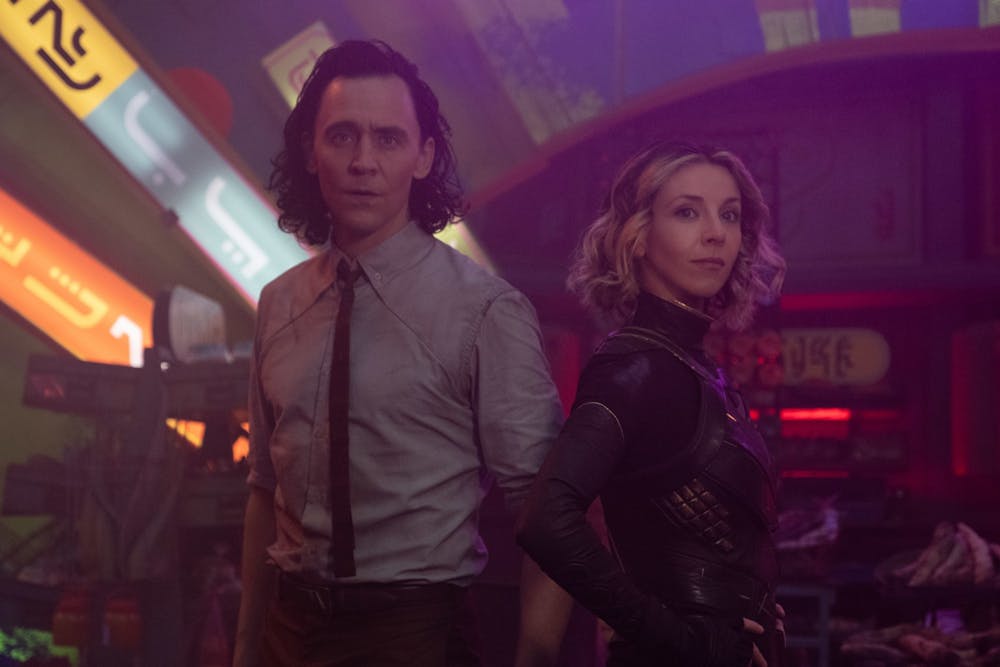Editor’s note: The following article contains spoilers for Loki.
“Loki” aired its thrilling finale on Wednesday and, after the conclusion of fellow Marvel Cinematic Universe shows “WandaVision” and “The Falcon and the Winter Soldier”, you can’t blame fans for expecting the finale to include a big fight scene typical of most MCU releases.
But no, “Loki” got its ending just right.
The ending action sequence was a given in “The Falcon and the Winter Soldier”. The characters of Sam and Bucky were built primarily in the MCU’s more action-heavy, spy-esque movies and the show itself featured action scenes as a primary component.
The same cannot be said for the finale of “WandaVision”, which had a build-up consisting of multiple plot lines and scheming with minimal fight scenes, only for the series to end with a duel between Wanda and Agatha that just feels out of place. Furthermore, can anyone reading this even remember the name of the antagonist dude from S.H.I.E.L.D?
Thought not.
Loki was similar. Mind you, there was some action sprinkled throughout the show, but that’s really not who Loki is as a character. He’s a trickster and schemer who plans things through to get to his desired outcome rather than forcing his way to it, and that’s how he operated in the show’s conclusion.
When Loki and Sylvie first reach the domain of He Who Remains, both are set on killing him to grant free will to the timeline. That is, before He Who Remains, a variant of Marvel villain Kang the Conqueror, reveals what outcome that action would generate.
Kang, brilliantly portrayed by Jonathon Majors, explains to the two that countless, much more sinister variants of himself would be unleashed as the timeline split in the event of his death.
Up to that point in the series and the MCU as a whole, Loki had been shown using his intellect to find solutions and get his way out of situations. His reaction to Kang’s revelation is in character for the Loki that developed over the course of the series, wanting to take a minute to consider the ramifications of the duo’s initial intent to kill Kang.
Sylvie, who throughout the series was relentlessly driven by her quest for revenge against the Time Variance Authority for robbing her of the opportunity to live out her life, ignores the warning, tricking Loki and sending him elsewhere before turning to kill Kang.
With his last breath, Kang simply smiles and whispers “See you soon.”
All too soon for Loki, who is revealed to have been transported to an alternate version of the TVA where a towering statue of Kang, clad in a costume fans will recognize from the comics, looms over the organization’s headquarters as the series comes to a close with Loki’s fate uncertain.
This conclusion serves as a new beginning for the MCU after the conclusion of its last overarching plot in “Avengers: Endgame”. Without Thanos, the world needs a new threat to unite Earth’s mightiest heroes once again, and the team at Marvel Studios found that in Kang and the ramifications of split timelines.
Kang’s arrival and the fracturing of the timeline open the doors for future films such as “Doctor Strange in the Multiverse of Madness” and “Spider-Man: No Way Home”, where appearances from past Spider-Man actors Tobey Maguire and Andrew Garfield have been rumored and desired by fans, including yours truly (Tobey is the reason why I grew up wearing Spider-Man costumes every other Halloween).
In all, “Loki” ended in the best way the series could have, staying true to its characters while making sure to leave the ending open for the future of the MCU.




